Staying Healthy With B-Cell Therapy

B-Cell Therapy and the Risk of Infection
When you're taking B-cell therapy (also called B-cell depletion) medications for multiple sclerosis, you're at higher risk for infections. These drugs -- ocrelizumab, ofatumumab, and rituximab -- target cells in your immune system called B cells. B cells contribute to the nerve damage of MS. But they're also involved in your body's immune response. So it's smart to take care to protect yourself while getting this treatment.

Get Vaccinated Before Treatment
B-cell therapy can keep so-called "inactivated" vaccines, like those for flu and hepatitis, from working well. And when your immunity is compromised from the treatment, "live vaccines" like the measles and chickenpox shots could actually cause infection. (Live virus vaccines contain weak versions of the actual virus.) Your best bet? Get all your recommended shots before your treatment starts.

Eat to Stay Healthy
While there's no single food or nutrient that boosts immunity, a well-rounded diet helps keep your immune system working its best. Eating lots of processed foods can have the opposite effect. Opt for plenty of lean protein, veggies, fruits, whole grains, and beans. Stay away from foods considered risky for people with weaker immune systems, like:
- Raw vegetable sprouts
- Raw eggs
- Unpasteurized juices
- Undercooked meats
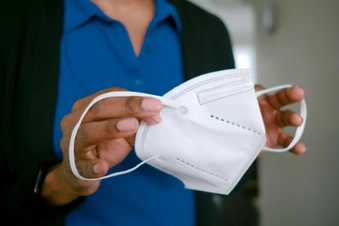
Avoid Exposure
One of the best ways to avoid illnesses like respiratory infections is to stay away from people who have them. Be wary of crowds, especially during cold and flu season. Even when we're not in the midst of a COVID-19 outbreak, wearing a well-fitting mask can give you extra protection -- especially in close quarters.

Protect Against Urinary Infections
Hydration is not only important for your overall health, but it also helps you avoid the urinary tract infections that often affect people with MS. Drink enough water to keep your urine clear. Also:
- Don't wait too long to poop, as a full bowel can keep your bladder from fully emptying.
- Wipe from front to back after using the toilet to keep bacteria out of your urinary tract.
- If you use a catheter, change it often.

Manage Your Stress
Over time, stress can do a number on your immune system. It reduces your body's levels of lymphocytes, blood cells that battle infections. So it's extra important to keep stress under control when you're on B-cell therapy. To keep your calm:
- Try yoga or meditation
- Listen to music
- Exercise outdoors
- Laugh – watch a comedy or tell someone your cringiest dad joke
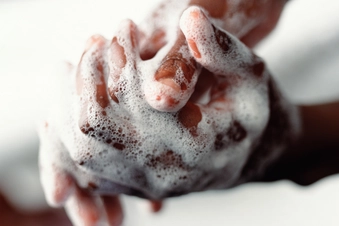
Keep It Clean
You've heard it before. But washing your hands often really is one of the simplest and best ways to protect against infections. Lather up with soap and water for at least 20 seconds. Do it:
- Before and after you handle food
- After you sneeze, cough, or blow your nose
- After you use the bathroom or change a diaper
- After you touch a pet or its food
When you're out and about, use hand sanitizer that contains at least 60% alcohol.
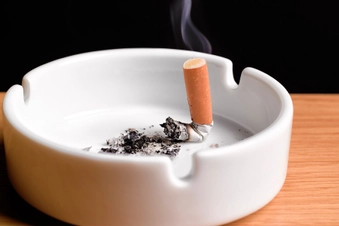
Kick Smoking and Limit Alcohol
Smoking weakens your immune system, one of many reasons doctors warn against it -- especially for people with MS. (It can also make MS worse, speeding up disability and causing more relapses.) Drinking alcohol regularly also makes you more prone to infections. If you drink, do so in moderation. That's one drink or less per day for women; two or less for men.
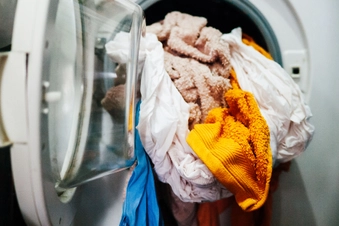
Safeguard Your Skin
You can get a skin infection from a virus, fungus, bacteria, or parasite. Bug bites on your skin also may carry diseases. To protect yourself:
- Keep damp household areas, like laundry rooms and bathrooms, clean.
- Regularly change out hygiene items like towels and toothbrushes.
- Don't share personal items like water bottles or utensils.
- Wear closed-toed shoes in public areas.
- Wear long sleeves and pants outdoors, and use bug repellent.
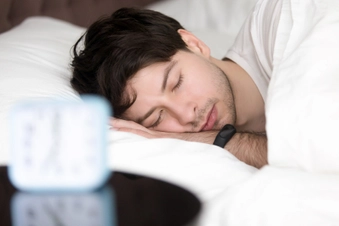
Prioritize Sleep
People with MS are more prone to sleep problems than others. But good sleep is crucial when your immune system is weaker. Sleep loss can make you more likely to get sick when you're exposed to a virus. Tell your doctor if you have trouble sleeping. These habits help, too:
- Go to bed and wake up at the same time daily.
- Avoid staring at screens before bed.
- Create a calming bedtime ritual – read, write in a journal, or listen to soft music.
Show Sources
IMAGES PROVIDED BY:
- NANOCLUSTERING / SCIENCE PHOTO LIBRARY / Getty Images
- kk-artworks / Getty Images
- PGoodie76 / Getty Images
- Grace Cary / Getty Images
- vitapix / Getty Images
- d3sign / Getty Images
- Hans Neleman / Getty Images
- Peter Dazeley / Getty Images
- Rafa Elias / Getty Images
- fizkes / Getty Images
SOURCES:
American Medical Association: “What Doctors Wish Immunocompromised Patients Knew During COVID-19.”
CDC: “Travelers with Weakened Immune Systems,” “COVID-19,” “Avoid Bug Bites,” “Smoking and Overall Health,” “People Who Are Immunocompromised,” "Dietary Guidelines for Alcohol."
Mayo Clinic: “Rituximab (Intravenous Route).”
MS Society: “5 Myths About Smoking and MS.”
MS Focus Magazine: “Hydration: What Do You Really Need?”
Multiple Sclerosis Related Disorders: “B-cell Depleting Therapies May Affect Susceptibility to Acute Respiratory Illness Among Patients with Multiple Sclerosis During the Early COVID-19 Epidemic in Iran.”